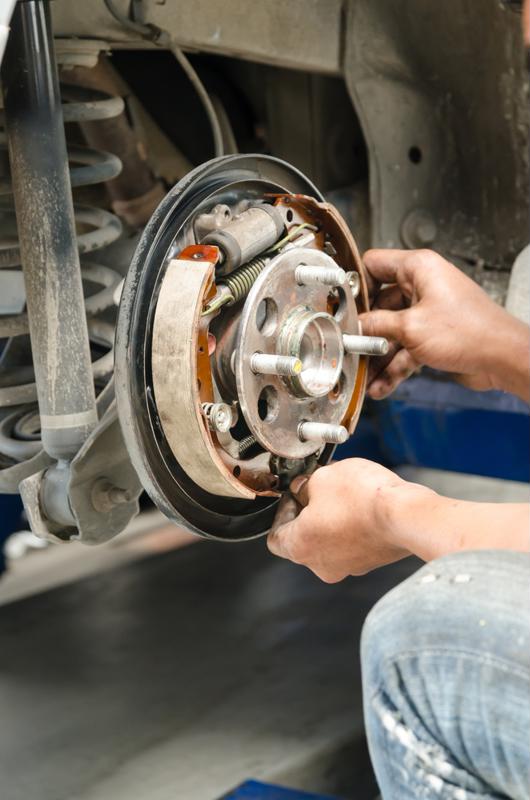

In theory, the wheel bearings on your vehicle could last for up to 100,000 miles. As many a seasoned driver will attest, the road is filled with twists and turns, both proverbial and literal. So what happens when potholes, speed bumps and other nuisances compromise the integrity of your bearings?
Let's explore what wheel bearings do for your automobile, ways to detect potential damage and what can happen if you leave them unattended.
What are wheel bearings, and what do wheel bearings do?
Aiding in the optimal rotation of the wheel, the wheel hub plays an important role in the safe operation of your vehicle. Wheel bearings housed within the hub contribute to your car's steering, braking and suspension systems. Located between the drive axle and the brake disc or drum, within the hub assembly, are small metal balls (ball bearings) or tapers (tapered bearings) held together by rings designed to reduce friction. Packed within these tightly-sealed, grease-filled waterproof rings, the bearings encased in the housing – called a 'race' – reside in the hub of each wheel on your vehicle.
While the wheel hub connects the wheel to the body of the vehicle, the bearings themselves allow the wheels to roll quietly and efficiently. They are safety-critical components, designated as such for their role in the continued proper operation of your vehicle.
Designed to sustain radial and axial loads caused by the various forces interacting with an automobile as it navigates the road, wheel bearings need to be replaced when they stop optimal function. A radial load is described as the force acting perpendicular to the axis, while axial loads are forces acting in the direction of the axis.
Signs your wheel bearings may need replacement
So how do you know your wheel bearings are failing? The most commonly reported indicator of bearing malfunction is odd or irregular noise when driving. Often described as a humming, clicking, grinding or growling noise, wheel bearing problems are generally worsened by acceleration or in turning maneuvers. When driving over uneven surfaces, a clunking sound may be heard, and vibrations from the wheels can often be felt in the cabin of the vehicle.
Uneven tire wear begins to emerge when the ball bearings or tapers loosen in their housings or lose their effectiveness. An excess of play or movement within the wheel assembly can also allow the steering of the vehicle to feel 'loose.'
The vehicle may begin to pull excessively to one side or the other, especially when applying the brakes. If the vehicle pulls to the left, for example, it is a likely indicator that the compromised wheel bearing is on the left (although it is worth noting that this could also be indicative of a wearing brake caliper or rotor issue, which should similarly be checked).
Located alongside wheel bearings in the wheel hub, an Anti-lock Braking System (ABS) sensor may trip and result in a warning light indicator. Excessive ring, tire or wheel wobble can, after all, stop the ABS from operating effectively.

The effects of failing wheel bearings
The first sign of a potentially failing wheel bearing does not typically result in the immediate failure of the wheel hub operation. However, continued use of a vehicle with failing wheel bearings could result in compromised vehicle performance, and – more importantly – passenger safety.
Dirt, debris or contaminants that find their way past the seal into the bearings can increase friction. Too much friction or heat within the bearings themselves can cause them to lock up or grind, potentially resulting in the wheel itself locking.
A wheel locking during vehicle operation can be hazardous, so it is important to diagnose potential problems with your vehicle before they worsen. Although the average life of a wheel bearing is potentially between 85,000 to 100,000 miles, factors such as road conditions, weather and even driving styles could shorten that distance considerably.
When encountering signs that could be attributed to a faulty wheel bearing, it is recommended to seek out the services of a professional for a full diagnosis.
Count on Greening
Greening Testing Laboratories is a fully certified brake testing lab that provides a variety of testing services worldwide. Contact Greening for a complimentary consultation and see how our ISO/IEC 17025 certified facilities can diagnose your automobile and testing needs.